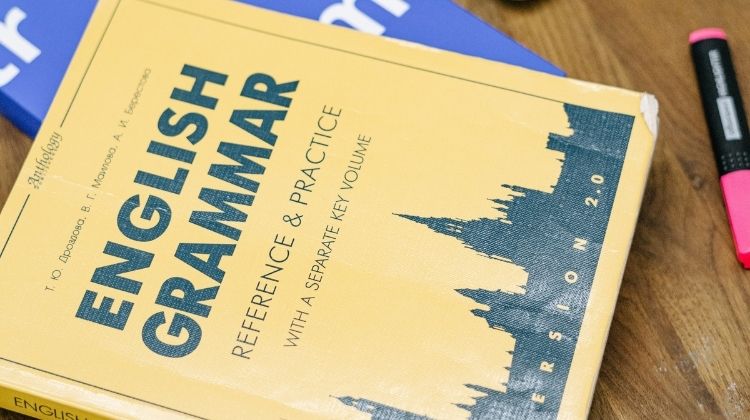Even native speakers sometimes make mistakes in their written English. When I was in university, a professor pulled me aside to tell me about a big problem in a story I’d written. I’d used the words “than” and “then” incorrectly!
“Making this kind of mistake can ruin good writing,” my professor told me. “It’s like giving a speech with a big piece of spinach stuck between your teeth!”
My professor’s words stuck with me. Nobody is perfect, but it’s important to make our writing as accurate as possible in order to make a good impression. Mastering the difference between “then” and “than” will help you do that.
When to use THAN
“Than” is a conjunction. It’s used when you want to compare two or more things. Here’s an example (which you may or may not agree with):
Pandas are cuter than penguins.
This sentence uses a comparative adjective (cuter) to compare two animals (pandas and penguins). “Than” ties the sentence together.
You can compare all kinds of things! You can make your own sentences following this structure:
(Thing A) is (comparative adjective) than (Thing B).
You can also use “than” in more complex sentences. For example:
“I’d rather buy some new clothes than go on vacation.”
“Elephants eat more than dogs.”
“Jenny walks more quickly than Lily.”
In the first sentence, you’re comparing which action the speaker wants to do more. In the second sentence, you’re comparing the amount of food that dogs and elephants eat. In the third sentence, you’re using an adverb rather than an adjective to compare the walking speed of Lily and Jenny.
When to use THEN
The word “then” usually functions as an adverb of time.
You can use it to mean “afterwards”, like this:
I brushed my teeth and then went to bed.
You can use it to mean “at that time”, like this:
I was thirteen years old when I met Tom. I didn’t know back then that he would change my life forever.
“Then” is also commonly used with “if” to mean “in that case”. Here’s an example:
If I have enough money, then I’ll buy a new computer.
Differences between THAN and THEN
At this point, the differences between “than” and “then” must seem clear to you. You may even be wondering why so many people confuse them! Well, there’s a reason for that.
“Than” and “then” are homophones. Homophones are two or more words with the same or very similar pronunciation but different meanings or spellings. To the ears of most native English speakers, “than” and “then” sound almost exactly the same, and the differences in spelling are only important when we’re writing.
Anyway, let’s quickly review the differences between “than” and “then”, just to be sure you don’t mix them up.
ThAn is a conjunction. It’s used in comparisons.
ThEn is an adverb of time. You can often replace it with “afterwards”, “at that time”, or “in that case”.
Simple, right?
More example sentences using THAN
A good way to master English sentence structure is to read many examples of the kind of sentence you’d like to create. Here are ten more example sentences using “than”:
1. Pineapple pizza is more delicious than vegetable pizza.
2. Star Trek is better than Star Wars.
3. Mosquitoes are more dangerous than lions.
4. Time is more important than money.
5. Tomatoes are more disgusting than any other food.
6. Adele sings more beautifully than Taylor Swift.
7. I’d rather be healthy than be rich.
8. You can learn more from reading books than from watching movies.
9. It’s sometimes easier to learn a new language as an adult than as a child.
10. Cats are better pets than dogs.
I’ve deliberately included some very controversial opinions in my example sentences. Maybe you don’t agree with some of them. Can you use “than” to state your opinions in the comments of this article?
More example sentences using THEN
Here are ten more example sentences using “then”. Can you imitate the structures to make your own sentences?
1. I woke up and then ate breakfast.
2. I bought a new dress and then put it in the closet.
3. First, wash your hands with soap and water. Then, dry them.
4. I didn’t go to school last Tuesday because I was very sick then.
5. I won’t be able to meet you at 3:00 because I’ll be busy then.
6. I didn’t answer the text you sent me last night because I was sleeping then.
7. If you don’t want to help, then please go home.
8. If it snows tomorrow, then we’ll make a snowman.
9. If I hadn’t spent all my money on ice cream, then I could have bought a new phone.
10. If you take a lot of lessons on italki, then your English will improve.
Conclusion
Hopefully these examples have clarified the usage of “than” and “then”. Can you correctly complete this sentence?
If you’d like to improve your English, ( than / then ) studying with a teacher is better ( than / then ) studying alone.
The answer is:
If you’d like to improve your English, THEN studying with a teacher is better THAN studying alone.
Luckily, there are many English teachers to choose from on italki.







